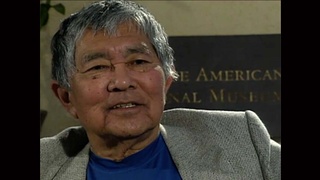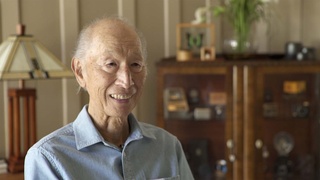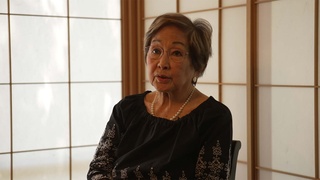Interviews
Impact of Pearl Harbor on her family
I can remember that term, Pearl Harbor, because I didn’t know what it was. I’m trying to put myself into that mind of a child of what was happening. A lot of it was confusing, a lot of confusion, wondered where my dad was. It was pretty harrowing when I think of it now because our family…we were a very tight family. Family was everything and my father was such the powerful center of it and then for him to just suddenly be taken away was very disconcerting and, you know, terrifying because he was a very strong and outspoken man. He could speak English very well. He spoke with a British accent because he studied in Japan where they spoke with a British accent. He was a very proud person so, you know, you felt safe with him and then suddenly he’s gone.
Date: December 27, 2005
Location: California, US
Interviewer: John Esaki
Contributed by: Watase Media Arts Center, Japanese American National Museum









